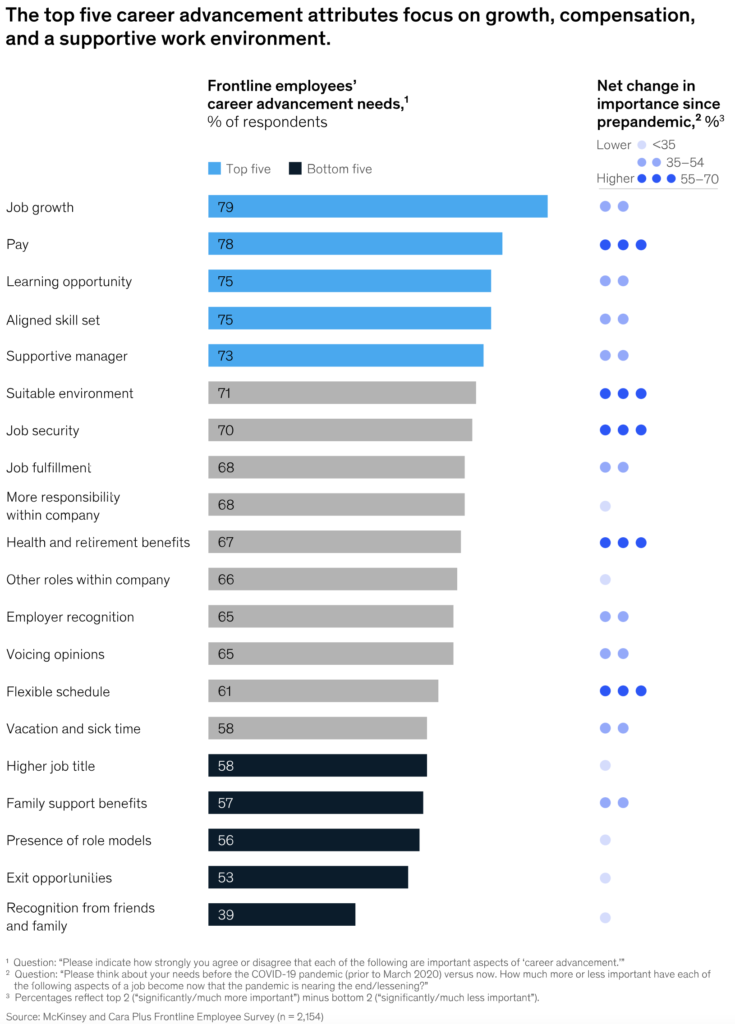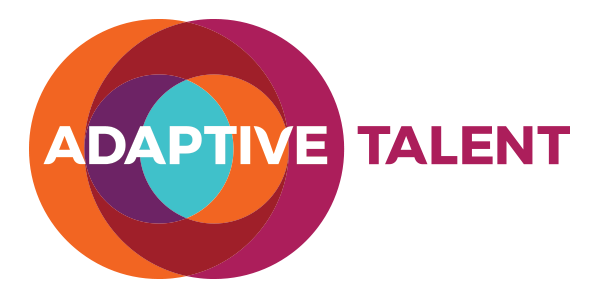With inflation at a forty-year high in most western countries it’s no wonder that employees and unions are demanding more money while management tries to figure out the right compensation, benefits, and overall employee experience quickly. I feel especially bad for those companies that invested in great office space and employee development while keeping their compensation philosophy targeted at the 50th percentile base range in the market. Just like when there’s a flash flood or sudden wild fires around you, rapidly accelerating inflation can quickly catch leaders off-guard and make their companies “easy pickings” for savvy recruiters. This is even more impactful when a company is in a sector with tight margins and/or pricing pressure.
Maslow’s hierarchy of needs demonstrates that people must prioritize lower level, more primal needs before other higher level needs can be met, most notably in their ability to meet their bodily needs, to house and feed themselves and their family, and to establish security and stability. Once you get over a certain level of income people normally are able to start focusing on the higher level needs and sources of satisfaction and meaning (assuming their revenue to expense ratio doesn’t get crazy). But if the global financial crisis, the pandemic, housing bubbles, and now decades-high inflation has shown us it’s very easy to create disequilibrium and panic as prices rise, jobs are lost, savings depleted, and trade-offs made. Frontline workers keep our world running so it’s imperative that leaders maximize retention and design a total rewards strategy that meets their needs while still integrating into their overall total rewards and employee experience design. 
McKinsey had an interesting article that went into depth on this topic and I encourage you to read the entire post. This section resonated with me most: “However, employees are motivated by a number of factors beyond compensation. In fact, Exhibit 2 also shows that the opportunity for job growth or promotion is an even higher priority for frontline employees than pay or benefits alone—and is significantly more important to frontline employees than their employers think. Rounding out the top five attributes for frontline employees are learning opportunities, an aligned skill set, and a supportive manager. Employees desire jobs that make the most of their current skills and allow them to learn and build new ones (for example, through paid training). And among frontline employees, 73 percent cited a manager who supports their career progression as key to career advancement.
Personal gratification from work is relatively less important to frontline employees than to the broader employee population. While previous research shows that 70 percent of all employees define their sense of purpose through their work, this factor seems to be less important for those on the front line. Less than one-third of frontline employees in our survey ranked fulfillment, excitement, or purpose among their five most important job attributes for career advancement.
Frontline employees’ preferences play a significant role in their decisions to apply for promotions and new roles, both within and outside the organization. Because most frontline employees would rather stay and grow with their current employer than pursue external roles, employers that can align their job profiles with their employees’ career advancement needs stand to retain and develop a greater share of their frontline employees.To better understand the preferences of frontline employees, we asked them to make trade-off decisions across a series of job profiles by selecting the combination of attributes that would most encourage them to apply. Our analysis provides a view into the relative importance of job attributes across four categories: incremental pay, traditional benefits, ancillary incentives (such as the opportunity for a yearly raise or promotion), and work schedule and flexibility. The findings suggest that compensation, growth through promotion, paid training, and high-value traditional benefits have the largest impact on frontline employee preferences among job profiles.”
Every organization is unique and yet leaders can rely on some tried and true approaches to approaching this work strategically. The minimum threshold for effective leadership is rapidly rising and the time to approach holistic organizational development is now, wherever you are and regardless of your own comfort with the topic. Please reach out to us for a no obligation discussion of your situation, problems, and goals.
---
Adaptive Talent is a talent consultancy designed to help organizations achieve amazing results and ongoing adaptability. Founded in 2008 and based in Vancouver, Canada we offer retained and contingent search, assessments, training, leadership coaching (1:1 and group), leadership development programs, and culture & organizational development consulting.

